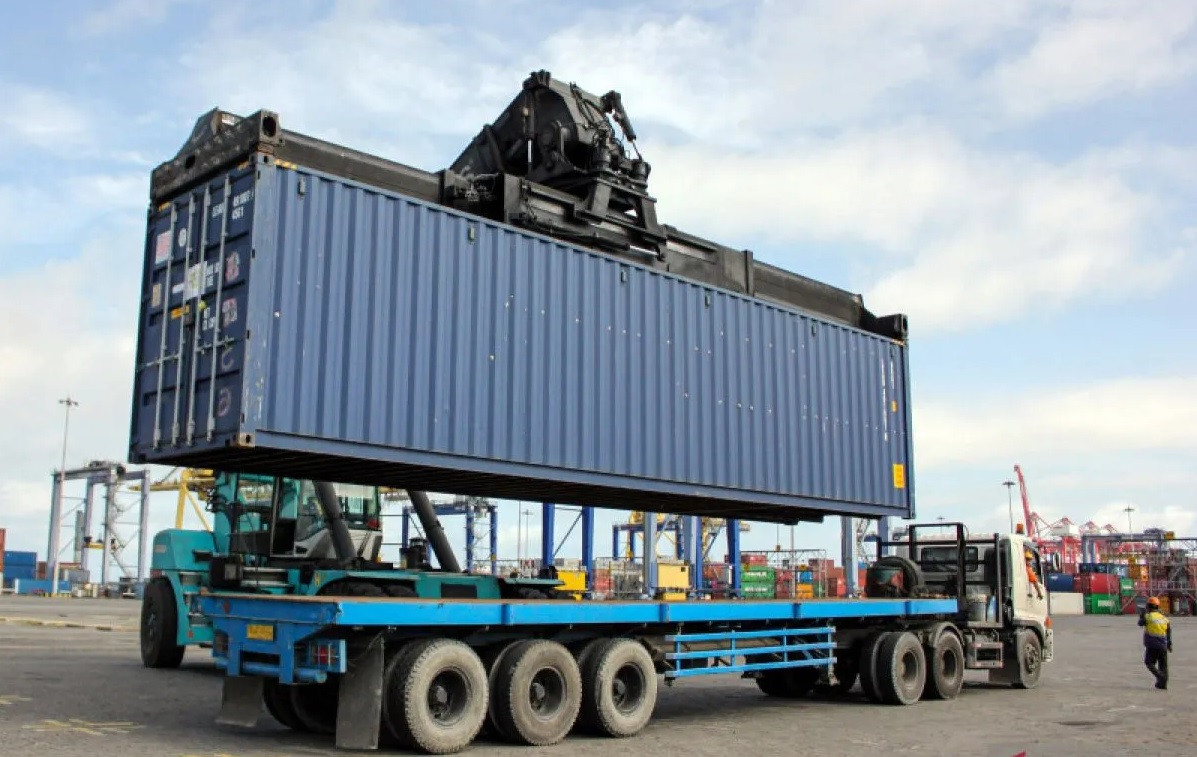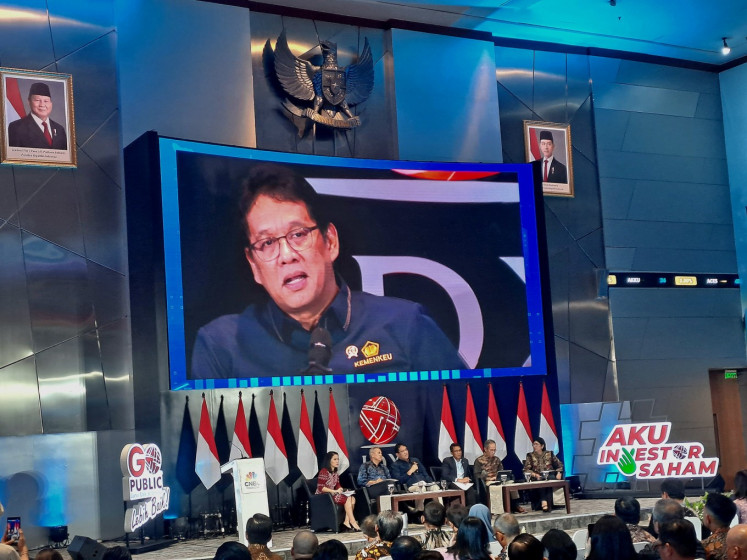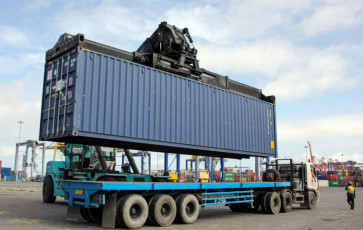Popular Reads
Top Results
Can't find what you're looking for?
View all search resultsPopular Reads
Top Results
Can't find what you're looking for?
View all search resultsImports dip on weakening industrial demand
The latest trade data shows that Indonesia has been importing fewer goods in recent months, which business representatives attribute to inflation and purchasing power but economists view as a temporary effect of the upcoming election.
Change text size
Gift Premium Articles
to Anyone
The latest trade data points to a further drop in imports because of reduced demand from both consumers and manufacturers.
Indonesian Employers Association (Apindo) attributes this to inflation and purchasing power, but economists view it as a temporary effect that is partly due to the upcoming election.
Statistics Indonesia (BPS) unveiled on Monday that imports amounted to just US$17.34 billion in September, marking a 12.45 percent year-on-year (yoy) drop.
“From the demand side, there was a rather significant slowdown in consumption growth,” Apindo chairwoman Shinta W. Kamdani told The Jakarta Post on Monday.
She attributed this demand slump to dwindling purchasing power among the middle class because of inflation driving up food and fuel prices.
Bank Indonesia’s consumer confidence index, which measure’s people’s assessments of inflation and economic activity, among other things, dipped to 121.7 points in September from 125.2 in August.
Respondents to the central bank’s latest monthly survey, which was published last week, expressed less optimism about the current state of the economy and had lower expectations for the near-term future.


















